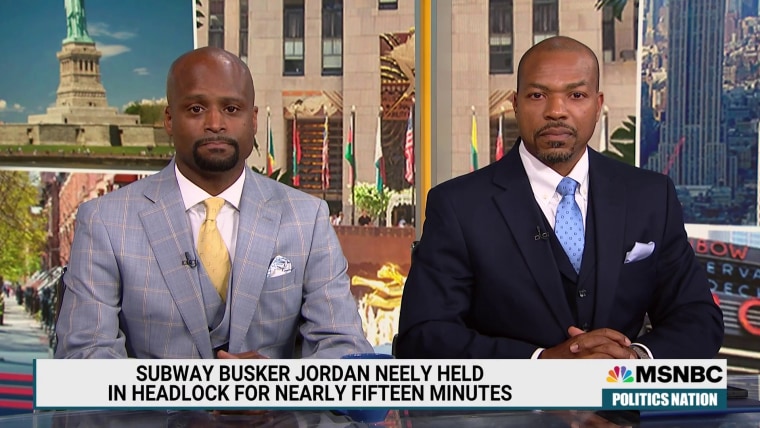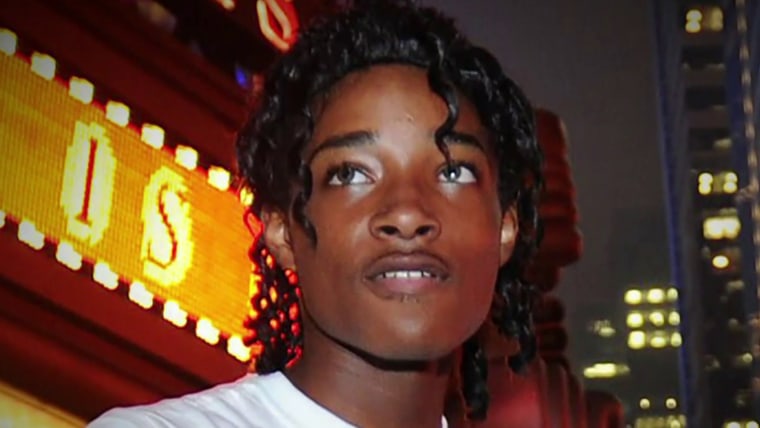Following the release of video footage depicting the choking death of Jordan Neely on a subway last week, a troubling narrative emerged in the media and online. This narrative, pushed both by seemingly well-meaning people and those who seemed to be inspired by nefarious motives, suggested Neely, who was homeless and seen yelling on camera, was the only person in that scenario whose mental health is worth considering.
Yet, among these people, there’s seemingly been no self-reflection about how these claims, which suggest Neely's outburst was the impetus for his slaying, further white supremacist talking points.
Many in the media watched a video of a white man choking a Black man for several minutes — seemingly for yelling too loud — and the widespread reaction was to ponder the Black man’s mental state as though this was a determining factor in his own death.
Lawyers for Daniel Penny, the man accused of choking Neely to death, said Penny acted to "protect" himself and other passengers after Neely began acting "aggressively threatening." But it's unclear whether Neely had physically threatened anyone. As of Tuesday morning, Penny has not been charged with a crime in the matter.

With regards to Neely’s mental health, I suggest people instead ponder the pervasive mindset many white people apparently hold, in which they feel they’ve earned dominion over other people’s lives.
To be certain, this narrative isn’t new. Over the last decade, we’ve seen the disturbing repetition of stories in which white officials, or even regular civilians, mete out violence against Black people alleged to be having mental health crises or altered mental states that made them formidable and imminently dangerous. To me, these conversations are always saturated in a sordid history of racist violence and medical misdiagnosis.
We see parallels between the past and the present in the ways Black people are expected to acquiesce to white people's will.
Watching people opine on Neely’s mental state, and hearing them imply this was the impetus for his being choked to death, hearkens back to the day enslaved Black people were said to have been stricken with “drapetomania,” a fictitious condition white racists used to describe people who tried or wanted to flee slavery. And these diagnoses came at a time when an enslaved person escaping could be punishable by death.
“The cause in the most of cases, that induces the negro to run away from service, is as much a disease of the mind as any other species of mental alienation,” wrote Samuel Cartwright, the physician who coined the term “drapetomania.” Cartwright blamed the condition on white people’s reluctance to force Black people to become “‘the submissive knee-bender’ (which the Almighty declared he should be).”
We see parallels between the past and the present in the ways Black people are expected to acquiesce to white people's will. Neely’s refusal on this front appears to have cost him his life. And it’s startling to witness so many observers of this story who seem fine with that transaction.
Discussing the history of drapetomania and pseudoscientific diagnoses with The New York Times in 2000, Harvard psychiatry professor Alvin Poussaint said: “Cartwright saw slavery as normative. So when slaves deviated from the norm, he called them mentally ill. The business of deciding what’s normal and what’s psychopathology gets influenced by culture and politics. It’s not hard science.”
The same can be said about Black people deemed to be of unsound mind today. Remember this as you follow the story of Jordan Neely and find yourself diagnosing the people involved.

